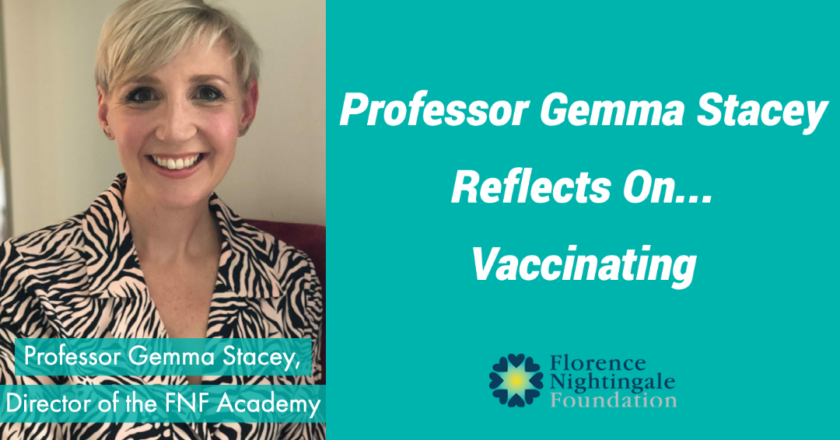
The pandemic has demanded many healthcare professionals to work outside of their comfort zone. This includes me.
As a proud member of the Critical Mental Health Nurse network and an academic, I have never worn a nurses uniform. In my clinical practice, the majority of people assessing the service I provided did not wish to take medication. I work hard to challenge the service model of “depot clinics” where people would turn up for their antipsychotic long acting injection on a fortnightly basis without conversation or review. This model of conveyer belt medication administration felt counterintuitive to person centred care and in conflict the values I ascribed to as a mental health nurse. So, to find myself volunteering at a Mass Vaccination Centre was most certainly a departure from the norm for me.
What I quickly realised though was I was surrounded by healthcare professionals who were in exactly the same boat. The diversity of professions in the room was vast. From dentists to ultra sound technicians and physiotherapists to paramedics, I was encircled by people who were displaced, working outside of their comfort zone. Despite this, I instantly felt part of a team. We were a group of strangers coming together for one clear purpose. This was to administer the vaccine to as many people as possible in a safe and efficient manner. Our individual professional label was a topic of conversation but irrelevant to the job at hand. I believe this was an experience of pure collegiality, an experience I feel privileged to have been part of.
The people receiving their vaccine all entered the centre with a story to tell about their experience of Covid-19. There was a day where I met people with learning disabilities and their carers who had been shielding since March and cried with the relief when they had their injection. On other days I met people who had lost someone dear to them through Covid-19 and the vaccine was regarded by them with anger as it had come too late. There were others who struggled with wearing a mask due to claustrophobia or were anxious about the safety of the vaccine. What became clear to me was my clinical experience as a mental health nurse was so relevant in this context and despite the conveyer belt approach to medicine administration, I had time to hear, validate and empathise with their story, even if just for a transient moment.
At the heart of this significant experience for me was an admiration for the nursing leadership. I have observed how the approach of a nurse leader, who has co-ordinated the Vaccination Centre, has created a culture that values each person contributing to the vaccination programme. She has provided clarity in a constantly changing environment and listened to the views of staff to improve the efficiency of the service. Her human approach to communication has fostered a feeling that “we are all in this together” and this filtered through to the flexibility and generosity of the staff. As the extended year of the nurse and the midwife continues, I am reminded again how the nursing contribution has been at the centre of the Covid-19 response and proud of my profession for showing the public how nursing leadership is central to our recovery.